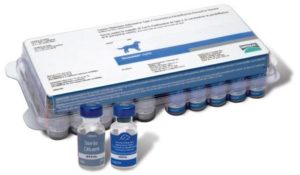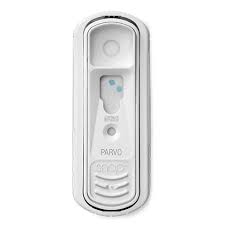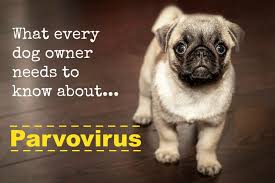Canine Parvovirus
Vaccination is a key component of preventative medicine in dogs, just as in people, and it starts with their puppy vaccinations. One of the core vaccinations for dogs is for the prevention of Parvovirus. Vaccinations  for parvo should start between 6-8 weeks and should be boostered monthly for 3-4 months until they are between 16-20 weeks of age. The vaccination should then be boostered annually to every 2 years throughout a dog’s life.
for parvo should start between 6-8 weeks and should be boostered monthly for 3-4 months until they are between 16-20 weeks of age. The vaccination should then be boostered annually to every 2 years throughout a dog’s life.
Parvovirus is a potentially fatal viral disease that most often affects puppies and unvaccinated adult dogs. The death rate of canines infected with this virus ranges from 16% to 48%. Parvo is transmitted through direct contact with an infected dog, or through indirect contact with the contaminated feces from an infected dog. Although any puppy or unvaccinated dog is at risk, there are a few breeds that are at increased risk of contracting the virus. These breeds include American Staffordshire Terrier, Rottweilers, Doberman Pinschers and German Shepherds. The virus is resistant to many common disinfectants and can survive several months in contaminated areas.
Dogs that are infected with parvo may not show clinical signs. An infected dog can also shed the virus before the onset of clinical signs. The onset of symptoms of parvo may be brought on by a stressful situation, such as a puppy going to a new home or an adult dog being kenneled for the first time. Symptoms of parvo include, but are not limited to, vomiting, bloody diarrhea, lethargy, and inappetance. The severity of symptoms are going to vary from case to case.
The virus is typically diagnosed with a snap test using infected feces. This test  detects the viral protein. This test can come back as negative if done too early in the course of the virus, which is why your veterinarian will likely retest if symptoms support Parvo.
detects the viral protein. This test can come back as negative if done too early in the course of the virus, which is why your veterinarian will likely retest if symptoms support Parvo.
There is no specific treatment for parvo. The patient is given supportive care to allow its own immune system to fight the virus. The patient is hospitalized, placed on IV fluids, gastroprotectants and antibiotics. If they survive the first 2-3 days of care, they will more than likely make a full recovery from the virus. Once recovered, because they can still act as a carrier for the virus, they must be quarantined from other puppies and dog with unknown vaccine history.
Again, vaccination is the key to prevent the parvo virus. To best protect your pet follow your veterinarian’s recommendation on vaccinating. As well as vaccinating, take precaution when introducing your new puppy to other puppies/dogs with unknown vaccine history and be aware of the new environments you bring your animal into.
